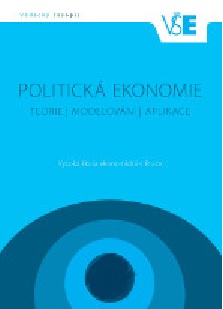Role of Research and Development Budgets and Socio-economic Conditions for Greener Energy Transition in Emerging Economies: Do Internal and external conflicts matter?
Role of Research and Development Budgets and Socio-economic Conditions for Greener Energy Transition in Emerging Economies: Do Internal and external conflicts matter?
Author(s): Lu Pan, Fucheng Yang, Chunyang Luo, Jiapeng DaiSubject(s): Economy, Energy and Environmental Studies, Political Sciences, Governance, Economic policy, Environmental and Energy policy, Socio-Economic Research
Published by: Vysoká škola ekonomická v Praze
Keywords: Greener energies; R&D budgets; socio-economic conditions; internal conflicts; external conflicts; financial globalization; emerging economies
Summary/Abstract: In the contemporary times, with the major conflict of the Russo-Ukrainian War, the global economiesare facing several challenges and disputes in various economic, energy, and financial sectors.Still, policymakers and scholars are concerned about exploring factors affecting greener energy.The present study examines the impact of research and development (R&D) budgets, financialglobalization and socio-economic conditions on greener energy adoption. Besides, this study considersthe role of internal and external conflicts on greener energy adoption in the “Emerging Seven”economies during the period 1990–2020. Using various diagnostic and cointegration tests,the results revealed the presence of cross-sectional dependence, heterogeneous slopes and a longrunequilibrium relationship. This study employes panel quantile regression and finds that R&Dbudgets, financial globalization, socio-economic conditions and internal and external conflictssignificantly promote greener energy adoption. Still, the influence of socio-economic conditionsis inconsistent across quantiles. Using the autoregressive distributed lag model as a robustnessmeasure, this study validates the positive impact of variables on greener energy adoption, exceptexternal conflicts. However, all the variables adversely influence greener energy adoptionin the short run. The empirical results also validate bidirectional and unidirectional causal associationsof the variables. Following the results, this study recommends further enhancementin the R&D budgets and financial globalization and limiting conflicts in emerging economies.
Journal: Politická ekonomie
- Issue Year: 72/2024
- Issue No: 2
- Page Range: 278-305
- Page Count: 27
- Language: English

